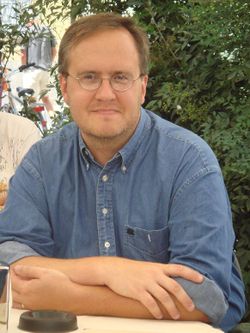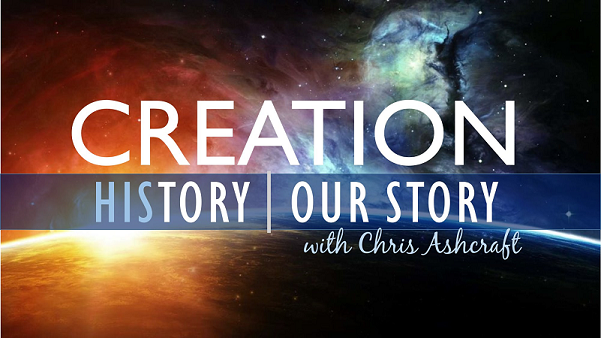Whatever Happened To Darwin’s Tree Of Life?
by
Paul Nelson PhD.
Seattle Creation Conference, October 2010.
Description:
Throughout the 20th century, Darwin’s picture of all organisms on Earth arising from a great Tree, with a single root, dominated biology. Within the past decade, however, a growing number of evolutionary biologists have announced that biology must “go beyond the doctrine of common descent” and that “the Tree of Life is dead.” What discoveries motivate these claims? What are the consequences for the origins debate? In his talk, Dr. Nelson will review the genomic data fracturing the Tree of Life at its base, and what this means for the future of biology.
This video file is a 60 minute seminar by Paul Nelson that was recorded during the Seattle Creation Conference, October 2010. View more videos from the 2010 conference.
About the Speaker:
 Paul A. Nelson
is a philosopher of
biology who has been involved in the
intelligent design debate internationally for
over two decades. His grandfather, Byron C. Nelson
(1893-1972), a
theologian and author, was an influential
mid-20th century dissenter from
Darwinian evolution. After receiving his B.A. in
philosophy with a minor in
evolutionary biology from the University of
Pittsburgh, Nelson entered the University of
Chicago, where he received his Ph.D. (1998) in the
philosophy of biology and evolutionary theory.[1]
He is currently a Fellow of the
Discovery Institute and Adjunct Professor in the
Master of Arts Program in Science & Religion at
Biola University.
Paul A. Nelson
is a philosopher of
biology who has been involved in the
intelligent design debate internationally for
over two decades. His grandfather, Byron C. Nelson
(1893-1972), a
theologian and author, was an influential
mid-20th century dissenter from
Darwinian evolution. After receiving his B.A. in
philosophy with a minor in
evolutionary biology from the University of
Pittsburgh, Nelson entered the University of
Chicago, where he received his Ph.D. (1998) in the
philosophy of biology and evolutionary theory.[1]
He is currently a Fellow of the
Discovery Institute and Adjunct Professor in the
Master of Arts Program in Science & Religion at
Biola University.
An early associate of Professor Phillip Johnson of UC-Berkeley, author of the bestselling critique Darwin on Trial, Nelson was an organizer of the Mere Creation conference (1996), where the modern intelligent design research community first formed. Nelson’s research interests include the relationship between developmental biology and our knowledge of the history of life, the theory of intelligent design, and the interaction of science and theology. He lectures frequently at colleges and universities throughout the United States and Europe, has spoken on American and Italian national public radio, and written for popular publications as varied as the Oslo Dagbladet and the Christian Research Journal.
Nelson’s scholarly articles have appeared in journals such as Biology & Philosophy, Zygon, Rhetoric and Public Affairs, and Touchstone, and book chapters in the anthologies Mere Creation (Intervarsity Press), Signs of Intelligence (Brazos), Intelligent Design Creationism and Its Critics (MIT Press), and Darwin, Design, and Public Education (Michigan State University Press). His forthcoming monograph, On Common Descent, critically evaluates the theory of common descent. He is a member of the Society for Developmental Biology (SDB) and the International Society for the History, Philosophy, and Social Studies of Biology (ISHPSSB).
This seminar was recorded during the Seattle Creation Conference, October 2010 at New Life Four Square Church, Everett WA. The Seattle Creation Conference is a regular event organized by the Northwest Creation Network. For information about the upcoming conference visit the Seattle Creation Conference website, or contact the NWCN to have us organize the next creation conference at your Church.

